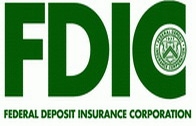Advertisement
FDIC Approves Final Rule Regarding Safe Harbor Protection for Securitizations

The Board of Directors of the Federal Deposit Insurance Corporation (FDIC) has approved a final rule to extend through Dec. 31, 2010, the Safe Harbor Protection for Treatment by the FDIC as Conservator or Receiver of Financial Assets Transferred by an Insured Depository Institution in Connection With a Securitization or Participation. Under this safe harbor, all securitizations or participations in process before the end of 2010 are permanently grandfathered under the existing terms of 12 C.F.R. Part 360.6.
When a safe harbor was initially adopted in 2000 for securitizations and participations, the FDIC provided important protections for securitizations and participations by confirming that in the event of a bank failure, the FDIC would not try to reclaim loans transferred into such transactions so long as an accounting sale had occurred. In June of last year, however, the Financial Accounting Standards Board (FASB) finalized modifications to the accounting treatment for such transactions through Statement of Financial Accounting Standards No. 166, Accounting for Transfers of Financial Assets, an Amendment of FASB Statement No. 140 (FAS 166) and Statement of Financial Accounting Standards No. 167, Amendments to FASB Interpretation No. 46(R) (FAS 167). Following the Nov. 15, 2009 effective date of these changes, most securitizations no longer meet the off-balance sheet standards for sale accounting treatment and, as a result, no longer comply with the preconditions for the application of the original FDIC safe harbor.
The FDIC Board had previously extended the protections twice, with the last set to expire on Sept. 30, 2010. The final rule is substantially similar to the March 11, 2010, extension.
"This rule has been in process for nearly a year, and the industry should have no problem adjusting to it by the time the safe harbor expires at the end of the year," said FDIC Chairman Sheila C. Bair. "A fair balance has been struck between protecting the FDIC's Deposit Insurance Fund and allowing participants to adjust to a safer, more transparent securitization market. We want the securitization market to come back, but in a way that is characterized by strong disclosure requirements for investors, good loan quality, accurate documentation, better oversight of servicers, and incentives to assure that assets are managed in a way that maximizes value for investors as a whole. Importantly, the rule is fully consistent with the clear mandate of the Dodd-Frank Act to apply a five percent risk retention requirement unless sufficiently strong underwriting standards are in place to counter incentives for lax lending created by the originate to distribute model. We look forward to working with our colleagues in developing those standards. Once in place, our rule will automatically conform to the interagency regulations."
The FDIC safe harbor regulation fully conforms to the provisions of the Dodd-Frank Wall Street Reform and Consumer Protection Act and addresses issues of particular interest to the FDIC in its responsibilities as deposit insurer and receiver for failed insured institutions. In order to ensure that the safe harbor regulation fully conforms with the risk retention regulations required by the Dodd-Frank Act, the FDIC's new safe harbor rule provides that, upon adoption of those interagency regulations, those final regulations shall exclusively govern the risk retention requirement in the safe harbor regulation.
For more information, visit www.fdic.gov.
About the author





